Foundation of University : Spirit, Concept and Goal

The “food industry” is a broad-based industry that includes the production, processing, distribution and sale of food.
Through integrated study of “agriculture,” the foundation of the local economy, “food,” the basis of people’s health and “business” the generator of new food industries, our university trains world-leading “food generalists.”
Foundation Spirit
“Liberty, Diversity, Creativity”
On the basis of “liberty” underpinned by self-discipline, our university fosters “diversity” respectful of the views and behavior of others and “creativity” in which creative endeavor is constantly inspired by curiosity.
Goal
To train talented people who engage in constructive problem-solving on the basis of a scientific understanding of life, the environment and society and a comprehensive mastery of wide-ranging knowledge and technology relating to food and agriculture ; and to contribute to the development of local and international society by linking R&D directly to the real world.
Human Resource Development Policy
Based on our foundation spirit, we aim to develop human resources who possess a comprehensive mastery of wide-ranging knowledge and technology relating to food and agriculture, and are capable of creating new values and contributing to regional invigoration and the development of international society.
Three Policies of Food Industry Faculty
Our goal is to train people with combined abilities in science, technology and business who will go on to solve problems and generate industries for a new era in the field of food and agriculture. It is also to carry out R&D directly linked to the real world. We develop human resources capable of creating industries for changing times that positively incorporate innovative theories, technologies and thinking related to food and agriculture. On the basis of these considerations we have established three policies: “Admission Policy,” “Curriculum Policy” and “Diploma Policy” as set out below.
Admission Policy
Knowledge and Understanding
Those with high school graduation-equivalent language ability and basic math and science ability.
Thinking and Judgment
Those who are curious to get to grips with various subjects and capable of multilateral thinking and judgment.
Interests and Ambitions
Those who are attracted to the field of food and agriculture, and interested in learning and research to understand new theories, technologies and subjects.
Attitude
Those who respect and seek a sympathetic understanding of different ways of thinking and behavior.
Skills and Expression
Those who can express their opinions clearly and cooperate with others in getting to grips with various subjects.
Curriculum Policy
The curriculum of the food industry faculty’s food industry department consists of a “common curriculum” in which students learn about food, agriculture and business in an integrated way and a “course curriculum” in which they develop specialist understanding and practical ability in each of these areas. The goal is to acquire knowledge and technology related to food, agriculture and business by linking these areas organically.
(1)Common Curriculum
The common curriculum consists of three subject groups divided into liberal arts, foundation and common core subjects which are distributed through each year of study from admission to graduation.
Throughout the four years, students acquire a broad liberal arts culture as members of society, and the ability both to play an active role in the international community and to contribute to social development by creating new values through a comprehensive understanding of food, agriculture and business.
(2)Course Curriculum
The course curriculum consists of two subject groups divided into specialized foundation subjects and specialized subjects. These are distributed step-by-step during the course groupings from second year to fourth year.
The specialized foundation subject group consists of subjects designed to give students basic knowledge in the various specialist fields. The specialized subject group consists of lectures that enable students to acquire highly practical specialized knowledge, and experiments, field practice and exercises that enable them to gain a high level of practical skills. As a culmination of their specialized study, students work towards completing graduate research and obtaining a diploma.
The Curriculum Policy for each course is as set out below.
(1)Agri. Course
The agri. course includes two domains: “cultivation science” and “plant molecule science.”
To enable students to understand plants as a biological phenomenon and to acquire judgment skills based on scientific foundations and the ability to pursue agricultural possibilities, the “cultivation science” domain consists of subjects relating to biological phenomena, cultivation and the environment, while the “plant molecule science” domain consists of subjects related to plant physiology, environmental adaptation, heredity, breeding, disease, and pathogens at the molecular, genetic, individual and community levels.
(2)Business Course
The business course is divided into two domains: “food industry” and “management.”
To enable students to acquire a comprehensive understanding of the food chain, and the ability to pursue the possibilities of the food industry and agriculture based on market-oriented concepts, the “food industry” domain consists of subjects related to business and policies in the food industry and agriculture while the “management” domain consists of subjects relating to entrepreneurial activities including finance, accounting, business plans and marketing.
(3)Food Course
The food course is divided into two domains: “food science” and “food processing.”
To enable students to acquire an understanding of the tastiness and function of food, judgment skills based on scientific foundations and the ability to pursue the possibilities of food, the “food science” domain consists of subjects relating to the nutrition, function and components of food while the “food processing” domain consists of subjects relating to the preservation, use, manufacture and quality of food.
Diploma Policy
Knowledge and Understanding
Students gain specialized knowledge of food and agricultural products and grasp the meaning of the entire food chain including the production, processing and sale of these products. In this way they learn to understand the food industry as a growth industry.
Thinking and Judgment
Students are equipped to lead new business creation in the food industry on the basis of the specialized knowledge they have acquired and a sound grasp of market-oriented concepts.
Interests and Ambitions
Students take an interest in the Japanese and international social situation including food, agriculture, economics and environment and are eager because of this to solve issues and problems.
Attitude
Students are capable of creating new values in food and agriculture and contributing to regional invigoration and social development.
Skills and Expression
Equipped with combined abilities in science, technology and business, students can explain their thinking and judgment processes logically, and lead the way to results by working on issues in cooperation with others.
Features of Food Industry Department
Training Program for Domestic and International “Food Generalists”
In this department from Years 1 to 4, students learn about all aspects of the food chain in the “Common Curriculum.” From Year 2 onward, they acquire specialist knowledge and technology in three courses: “Agri. Course,” “Food Course” and “Business Course.” Throughout the four years, students train as “food generalists” capable of playing an active part in Japan and on the international stage. They develop practical skills which will enable them to function in corporations and acquire English at a level that will allow them to share information about Japanese food all over the world.

【Point 1】Learning about the Food Chain (Years 1 – 4)

In this faculty, through integrated learning about “food,” “agriculture” and “business,” students acquire an understanding of the whole food chain which is essential for the future development of the food industry sector.
In addition to the four-year common curriculum devoted to understanding the food industry as a whole, followed by comprehensive education and research on “food” from Year 2 onward, students acquire specialized knowledge and technology in the three-course curriculum. Through lateral study of science, technology (applied) and business (economics and management), without being confined to a particular discipline, students are trained to become both “specialists” with a high level of specialization and “generalists” in the food industry sector.
【Point 2】 Three-course System (Years 2 – 4)

From Year 2, there are three separate courses: Agri., Business and Food, and students acquire specialized knowledge and technology in each field.
It is also possible to attend lecture subjects in other courses. Lateral study of the food industry in the Agri. Course x Business Course or Food Course x Agri. Course, etc., leads to new technology development and product creation.
【Point 3】 Collaborative lectures with other courses (Year 4)

In Year 4, students acquire the ability to create a food industry for a new era through their own research and collaborative lectures with other courses. In “Graduation Research Ⅰ・Ⅱ” they tackle research on a theme they themselves have decided with advice from the tutor in charge of each course.
In “Food Industry Practice Theory Ⅰ・Ⅱ,” a lecture subject unique to this university which brings together the study of “food,” “agriculture” and “business,” students acquire the skills of “generalists”in the food industry sector by combining the specialties of the various fields and collaborating and cooperating with students on other courses in activities such as preparing an actual business plan.
【Point 4】 Training people capable of playing an active part in a wide range of fields
We train human resources capable of playing an active part in every food-related field through integrated study of food, agriculture and business
Learning English

Through studying English continuously for four years, students acquire the English ability needed to develop Japan’s food industry through initiatives such as opening up overseas business.
General English I – IV
Using materials dealing with food cultures around the world as well as international issues, and questions used in the TOEIC exam, students aim to improve their reading and listening skills in English.
Overseas Study (optional)
Our university offers the opportunity to study overseas in Australia with its flourishing import-export food industry. In this unique program, unavailable elsewhere, students receive English lessons and attend specialized lectures at the University of Queensland, and have the chance to observe local food, agriculture and business sites and stay with Australian families.
English Presentation Practice I ・ II
Students acquire the skills to speak, discuss and make presentations both individually and in a group on themes such as “Japanese Food” and “Cultivation and Distribution of Farm Produce.”
Information for International Students
International Students School Fee Support System
The university supports learning through fee exemptions for international students.
International Students’ Student Payments (where students are eligible for type II fee payment reduction/exemption)
| Student Payments | Semester 1 | Semester 2 | Annual Total | Exemption |
|---|---|---|---|---|
| 1Year 1 fees | 346,100 JPY | 312,500 JPY | 658,600 JPY | 875,000 JPY exemption (*including enrollment fees) |
| Year 2 and thereafter | 371,100 JPY | 337,500 JPY | 708,600 JPY | 675,000 JPY exemption |
| Total for 4 years | 2,784,400 JPY | 2,900,000 JPY exemption | ||
* International students are exempt from paying enrollment fees.
* The type of fee exemption is decided on the basis of general criteria such as entrance examination results and need for learning support, etc..
* Annual student association fees and annual university supporters’ club fees are included.
Details about the international student fee exemption system may be obtained from the university’s entrance examination office. (Tel:+81-254-28-9840)
International Students Entrance Examination
This exam is for non-Japanese nationals with Japanese language ability approximately equivalent to a pass in the Japanese Language Proficiency Test “JLPT” N3 or a score of 180 points in the Examination for Japanese University Admission “EJU.”
See details below.
Overseas Students Support System
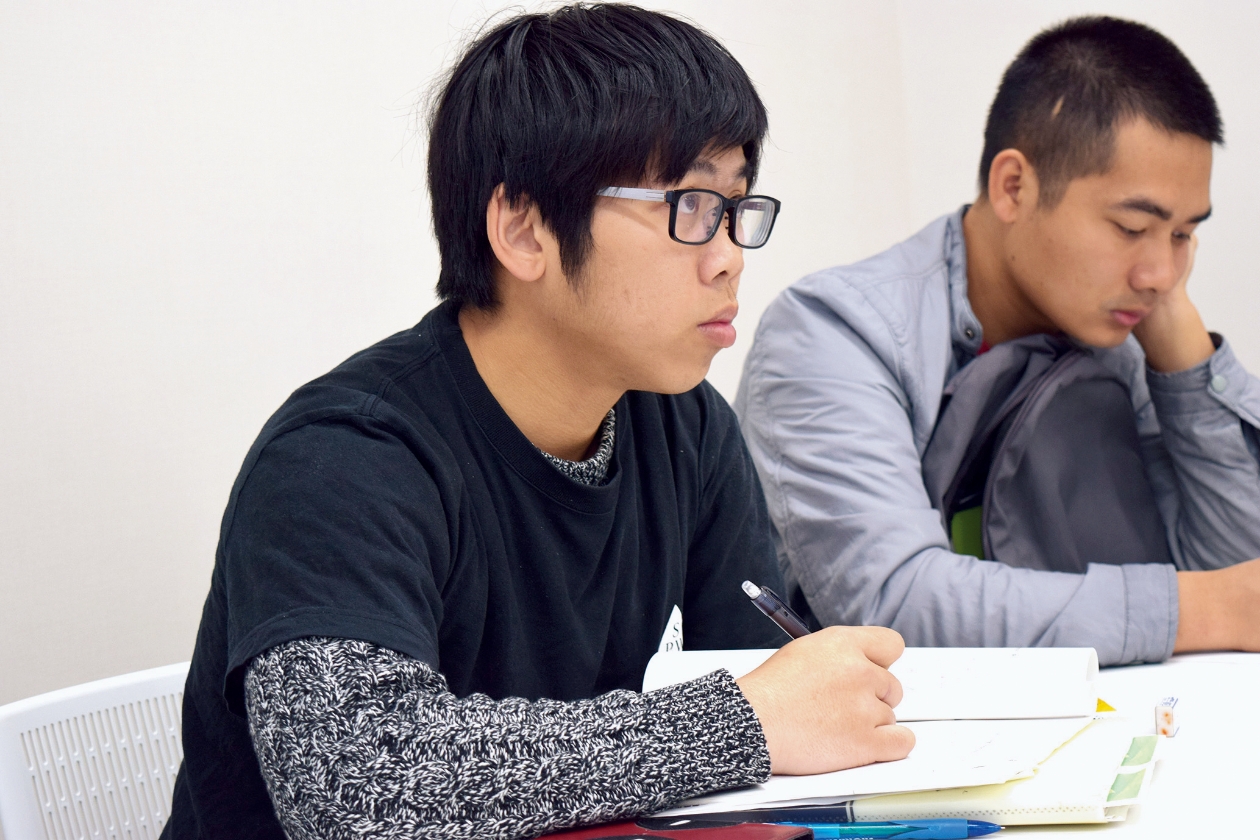
Learning Support
Japanese language class. Using textbooks designed for the Japanese Language Proficiency Test (JLPT) we help you to improve your Japanese language ability by obtaining levels N1 and N2 for example.
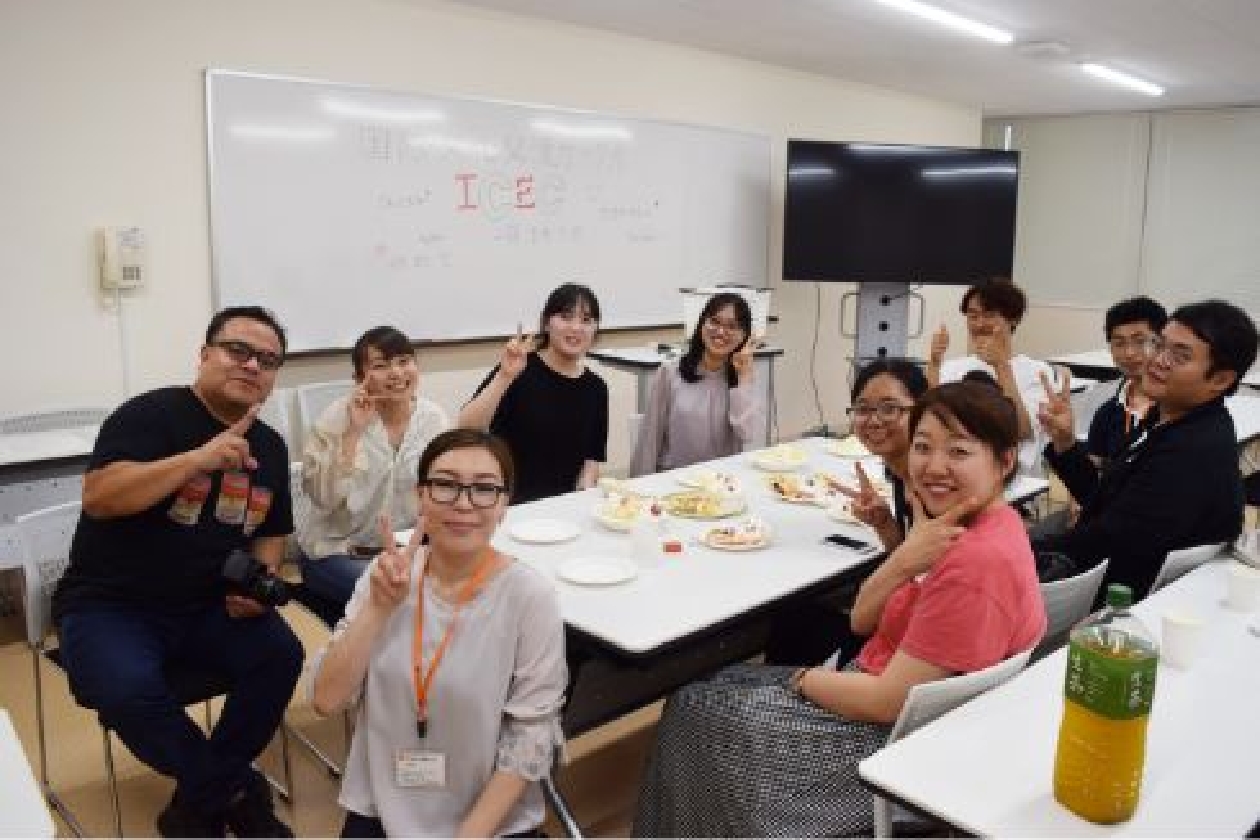
Living Support
Our wide-ranging back-up system including part-time work information and help with renewing student visas enables you to enjoy hassle-free student life. Clubs and seminars also give you the opportunity to fraternize with Japanese students.
International Exchange Activities
Social Club for Overseas and Japanese Students
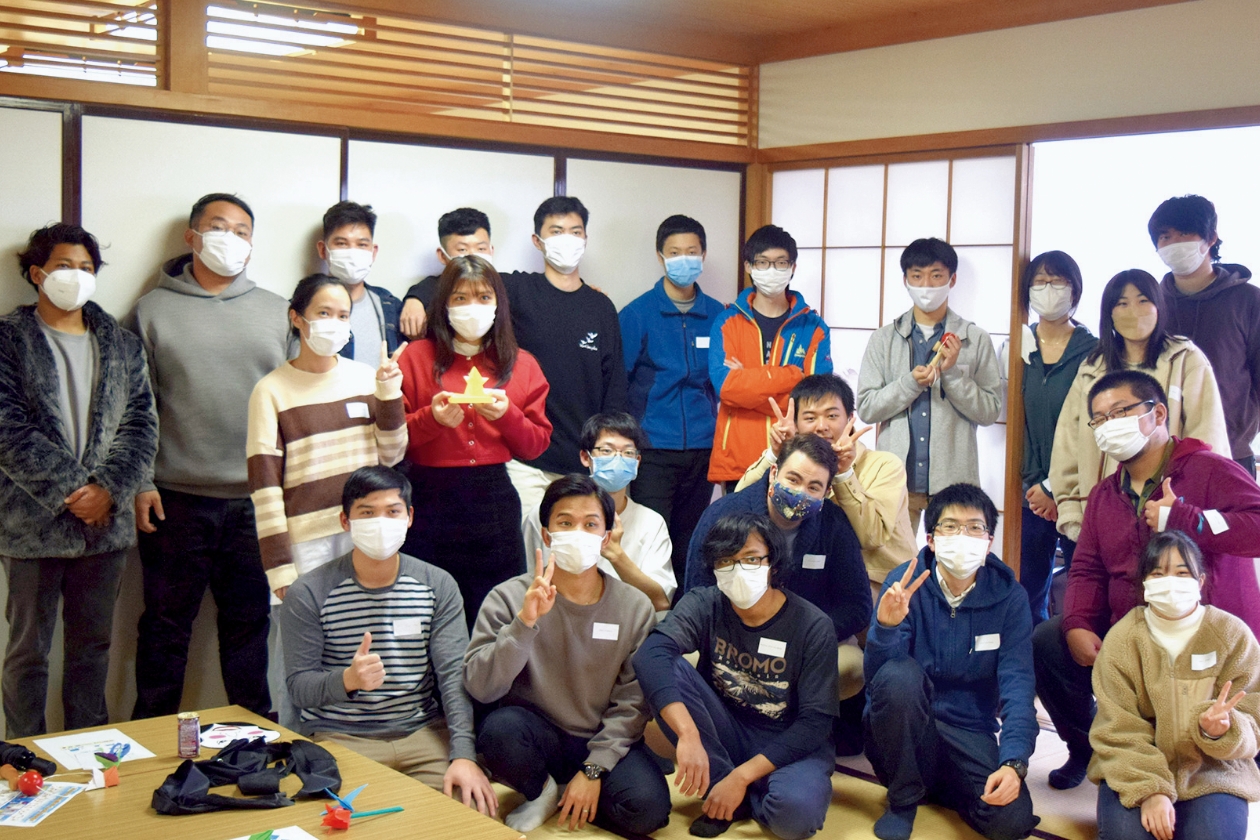
As part of our school’s international exchange activities, we provide opportunities for Japanese and overseas students to mingle. At the Social Club students were trying their hand at traditional Japanese fun and games like origami, kendama and fukuwarai. These moments, which serve to deepen ties of friendship, can be enjoyed by everybody regardless of academic year and country of birth.
International Understanding Seminar hosted by International Social Club
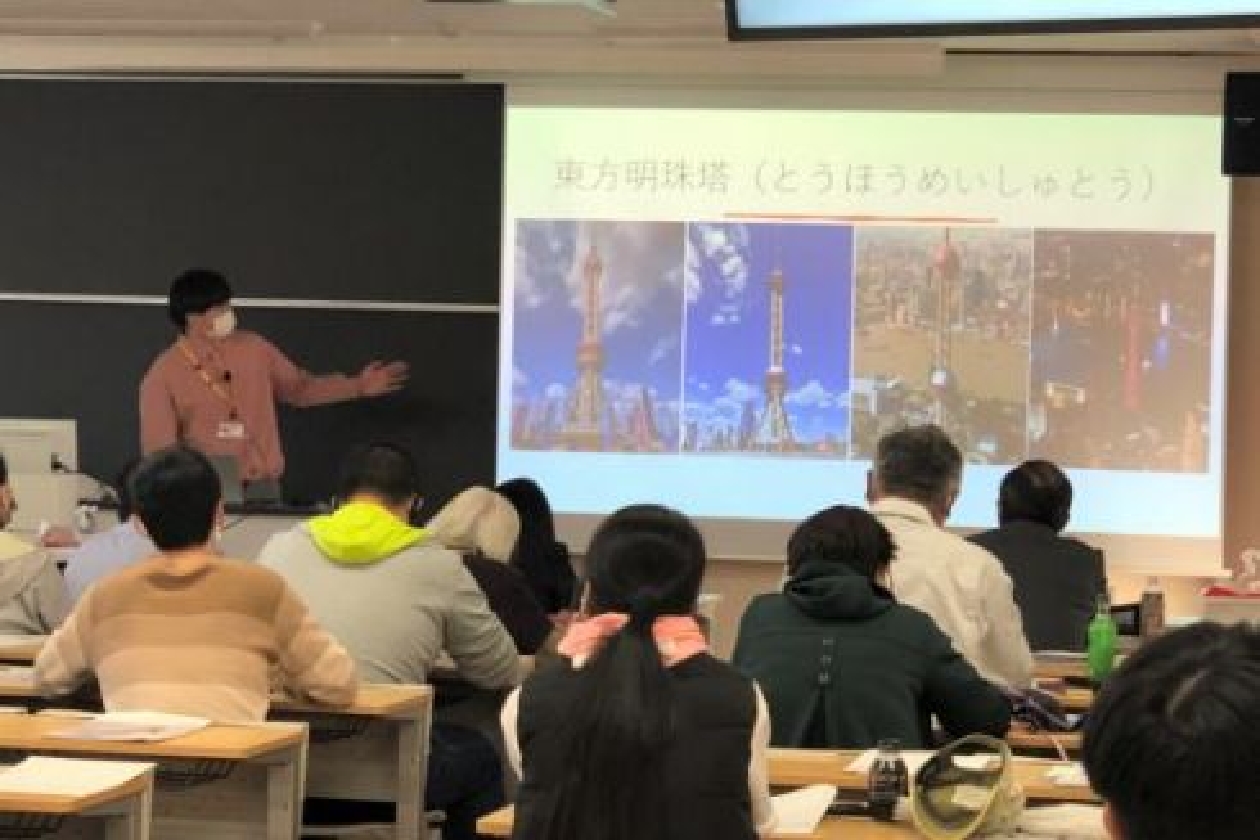
In 2021 the club hosted seminars on the theme: “Hunger breeds discontentment! Food and farming in China.”
Mr. Tiejun Zhao, a teacher at this school, presented a lecture about the culinary culture, agricultural production and organization of distribution systems in different regions of China. He told us that there were many local foods which even other Chinese people had never tasted. Students also described agriculture and food culture in their own areas.
Overseas students active at our school
REGINA ANCILLA NATASYA
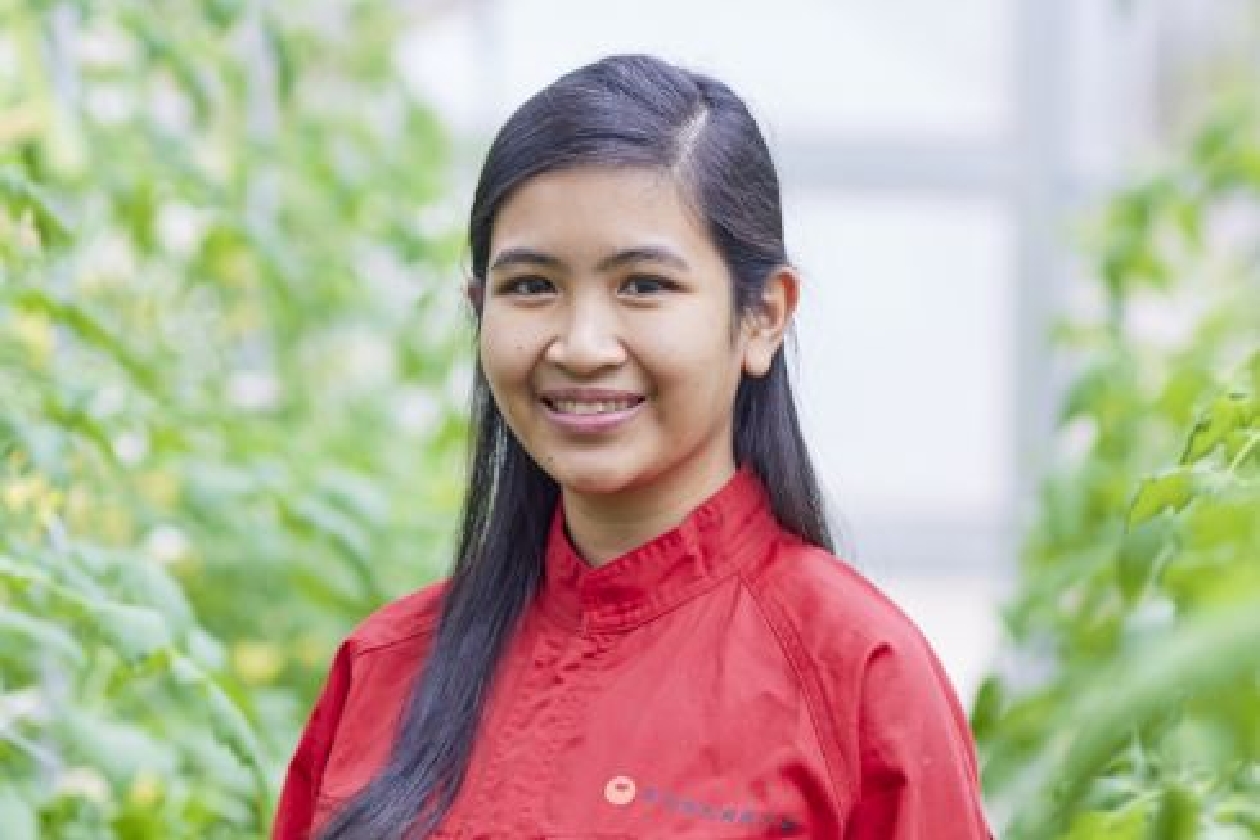
What we liked about NAFU:
The teachers are kind and encourage and support us in our studies and in what we want to do. Since they are invariably helpful when we have problems, I give them full marks for their support. There is also a medical center for both psychological and physical backup which means we have peace of mind to enjoy student life.
Regina Ancilla Natasya
Country/Region: Indonesia
Agri. Course
Food Industry Department, Food Industry Faculty
SONIA RISTANTI
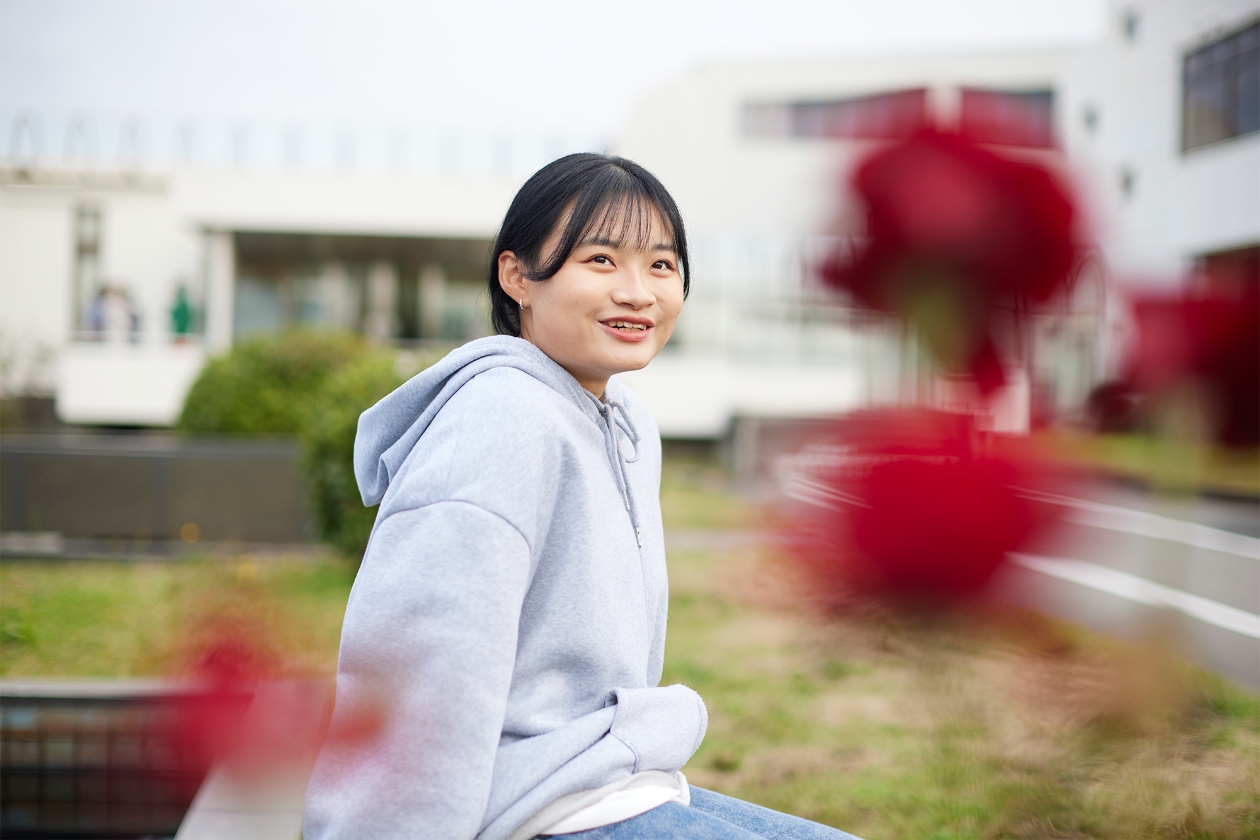
At the university, I participated in a regional cooperation project to sell Italian vegetables as a specialty of Tainai City.
This activity was a fresh experience for me as I was able to communicate not only with students but also with a variety of people including restaurants, Tainai City farmers, and city officials. It was a great learning experience for me, as I experienced everything from opening a stall at an event to managing cultivation.
At this university, students can study a wide range of topics from production, processing, distribution, and sales.
I think NAFU is the only university in Japan where you can study the food industry as a whole.
Professors of various specialties are also kind and attentive to our students!
SONIA RISTANTI
Country/Region: Indonesia
Agri. Course

